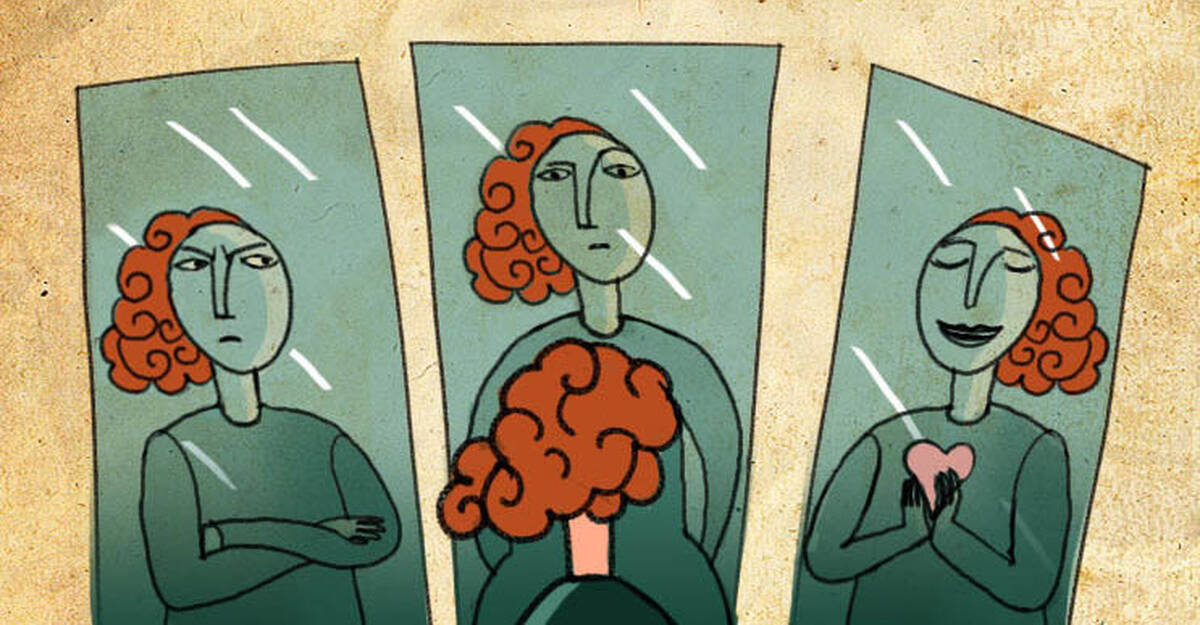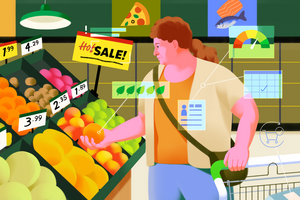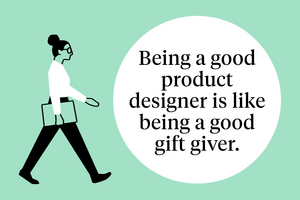Marketing Oct 4, 2018
Are You a Different Person at Work Than at Home? Compartmentalizing Like This Can Lead to Unethical Decisions.
New research examines how self-perception affects moral behavior.

Yevgenia Nayberg
Most of us don’t feel like Wonder Woman or Superman on a daily basis. Yet we have something in common with them: we all juggle different identities.
One person may be a mom in the morning, a competitive triathlete at the gym, an empathetic doctor at work, an avid chef at dinnertime, then back to mom for bedtime.
Yet the way we view those varied roles differs from one individual to the next. Some of us think of ourselves as having essentially the same traits across every role. For instance, one person may think of himself as caring, whether he is managing others at work or tending to his young nephew. Others, however, view themselves as different people in different roles—an intimidating judge but a gentle grandmother.
Maferima Touré-Tillery, an assistant professor of marketing at the Kellogg School, wondered how these distinctions play into our moral decision-making.
“The goal of being a good person is a powerful motivator,” she says. “Most people have a strong desire to maintain a positive view of themselves.”
In new research, Touré-Tillery and a coauthor find that people who perceive their personalities as constant across their roles are more likely to behave ethically than those who think of themselves differently in each role.
Being good matters more to this first group because if they behave immorally, they see themselves in a poor light across the board, Touré-Tillery explains. Avoiding that negative self-image can motivate people to behave better.
“We all have different identities that we label ourselves with,” Touré-Tillery says. “What we were looking at in our study is not so much what those labels are or how many there are, but whether people think of themselves the same way across those identities.”
Overlapping Traits and Ethical Actions
Previous studies have shown a link between personality traits across our identities, and how we handle distress.
For example, researchers found that college students who say they have fewer identities—and their traits are similar across those identities—tend to experience more physical and mental distress after taxing life events than students who define themselves with more—and more disparate—identities.
But most of this research did not look at how a person’s self-image could predict their future actions. In a series of experiments, Touré-Tillery and Alysson Light of the University of the Sciences in Philadelphia measured people’s ideas of themselves, and how those ideas affected their behavior.
In the first experiment, the researchers asked approximately 250 online participants to list words that described their identities, such as “gamer” or “father.” Then participants chose words such as “competitive,” “imaginative,” or “outgoing” from a list of adjectives to describe each of these identities. They also reported whether they felt that they were the same person across all roles.
People who reported feeling that they were the same person across all roles used roughly the same set of adjectives on all their lists. Those who described themselves as being different in their many roles used fewer overlapping adjectives.
Next, participants were presented with a series of 12 situations, such as whether they would return excess change to a cashier at the grocery store. People who used the same adjectives across multiple roles were more likely to be ethical than those who identified as having fewer overlapping traits, the researchers found.
Having the same sense of self across identities makes it harder to compartmentalize bad behavior, Touré-Tillery says.
“If I tend to think about myself the same way from one identity to the next, then if I do something that’s going to make me feel bad about myself, it’s likely that I’ll feel bad about myself across all of my identities,” she says. “Every unethical thing amplifies that sense of being a bad person.”
Tweaking Self-Perception
But does this overlap—or lack of it—drive ethical behavior, or is it merely linked to morality?
To answer that question, Touré-Tillery and Light went a step further: in a series of experiments, they manipulated the extent to which people viewed their own identities as similar or different.
As in the earlier experiment, the team asked participants to list their roles. But instead of matching those roles with adjectives, some participants were asked to describe the ways in which they act and think similarly across roles, while others were asked to focus on the differences.
“If I tend to think about myself the same way from one identity to the next, then if I do something that’s going to make me feel bad about myself, it’s likely that I’ll feel bad about myself across all of my identities.”
Once again, they were next asked to think about how they would respond to scenarios like receiving excess change at the grocery store. The group that had been prompted to think about how they act and think similarly across identities was more likely to report that they would make the ethical choice than the group that had thought about differences.
These results show that how a person splices facets of their identity together clearly matters in terms of what people say they will do in the face of a moral dilemma.
“But we also wanted to observe real behavior—what do people actually do, as opposed to what they say they will do?” Touré-Tillery says.
So, in two final experiments, participants who had either been primed to focus on the similarities or the differences across their personas were told to virtually flip a coin after predicting the outcome of the coin flip. In one experiment, they simply reported whether they got what they had predicted. But in a second, they received a 25-cent reward each time they reported getting what they had predicted.
When there was no incentive, almost everyone reported the same ratios of correct and incorrect predictions. But when there was a prize to be had, 82 percent of people who had thought about the differences across their identities reported more correct predictions. People who had dwelled on similarities reported similar scores whether or not there was a reward. This suggests that those who were feeling consistent across their identities acted more honestly.
Real-world Implications
It is difficult to predict how someone will think of herself across various identities—and, as the researchers demonstrate, such thinking can change based on circumstances. So, generalizing the results into recommendations for policy-makers, fund-raisers, or others should be approached carefully, Touré-Tillery explains.
But there are other reasons organizations should take note. For example, perhaps these findings could help companies deciding whether to implement policies to improve work–life balance for employees: feeling comfortable bringing their family-related identities to work may help employees become more moral at work.
“By having them merge their work and personal lives,” Touré-Tillery says, “you are helping them merge their identities as parent and worker—so they might behave more morally across the board.”



